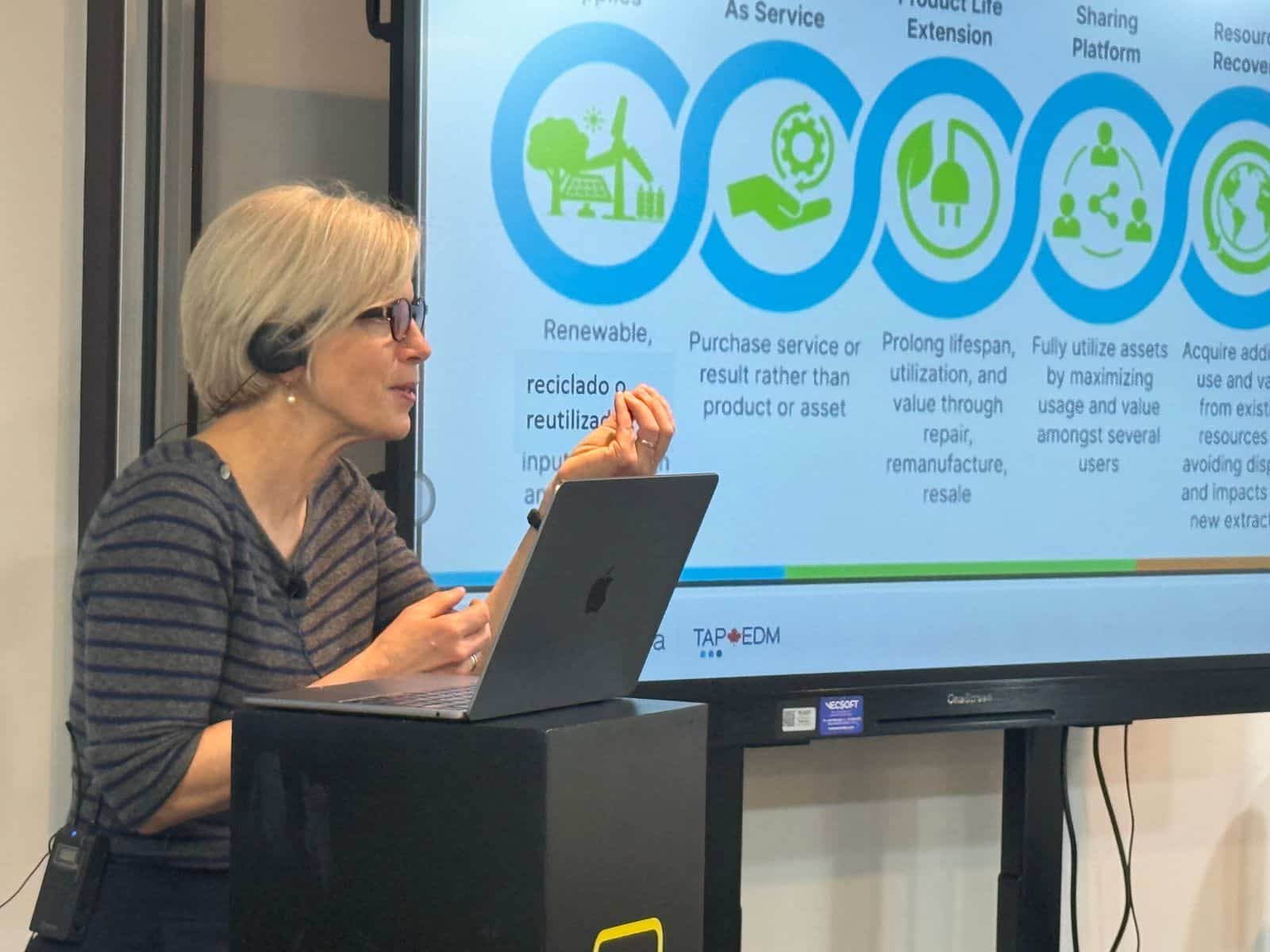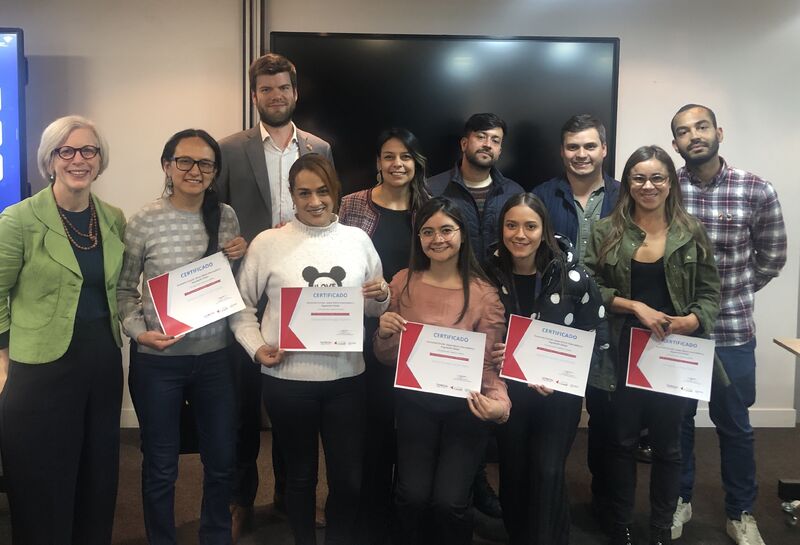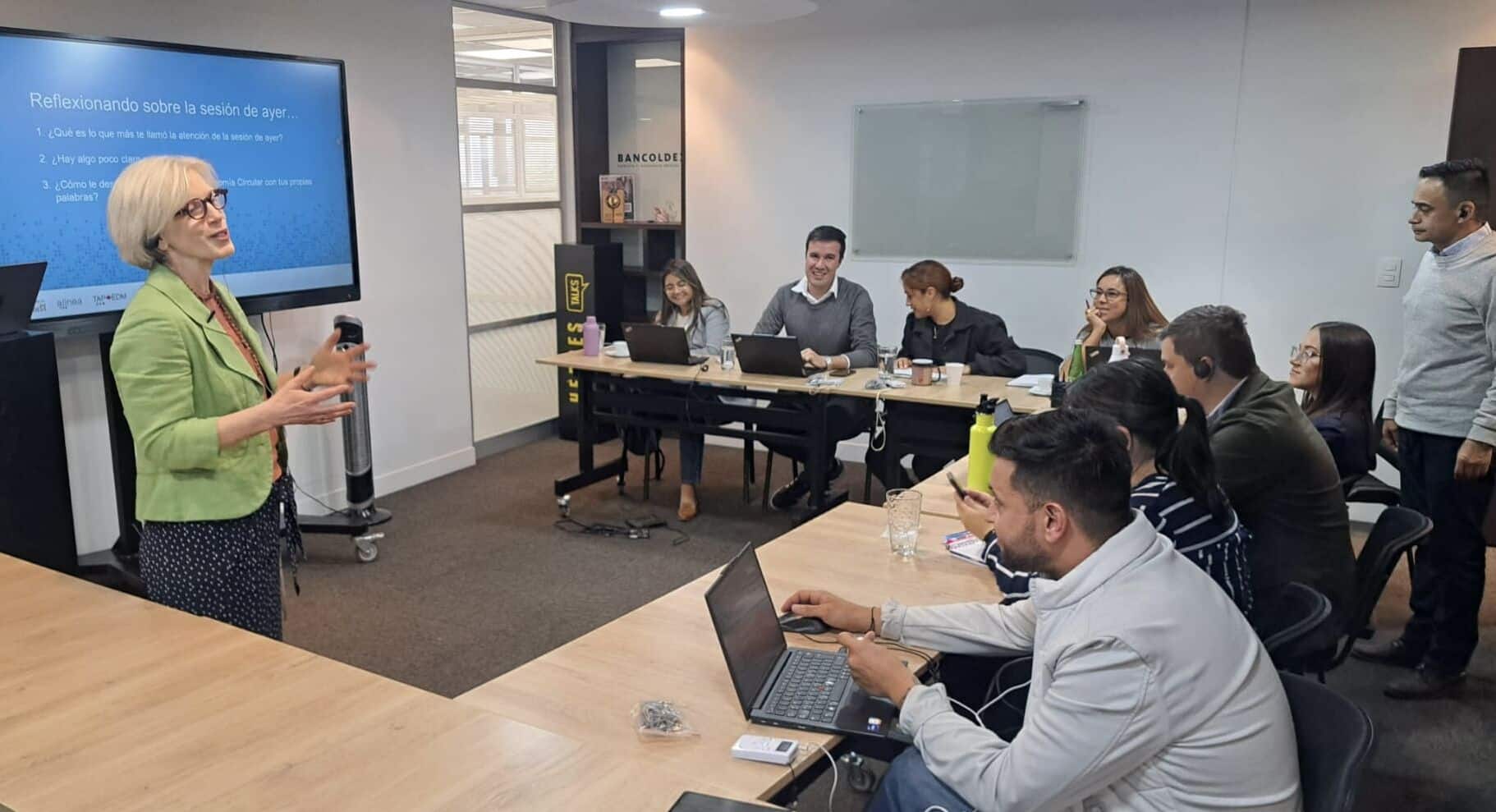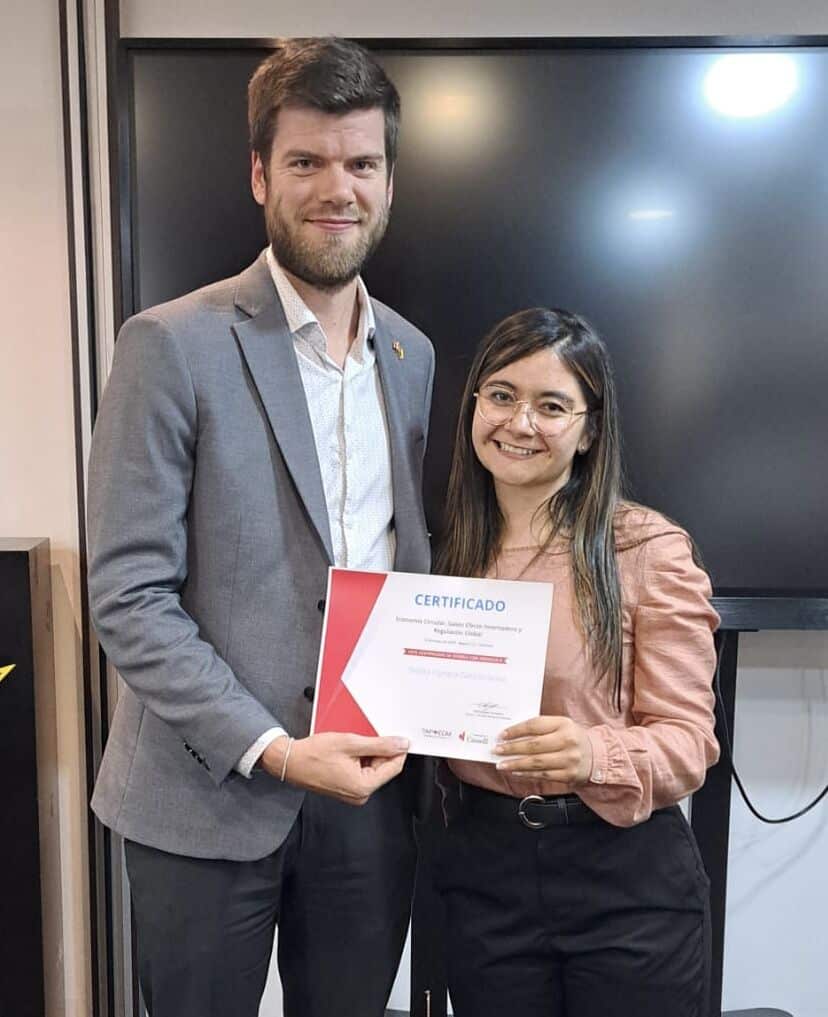
The Technical Assistance Program – Expert Deployment Mechanism (TAP-EDM) initiative, implemented by Alinea International and funded by Global Affairs Canada, works collaboratively with Canadian expert Kate Reekie and Colombia’s Ministry of Trade, Industry and Tourism and INNpulsa, the National Government’s entrepreneurship and innovation agency, to enhance INNpulsa’s institutional capacity.
In this blog, written for Glebe Report, Kate reflects on her background, volunteer spirit and her insights on her inspiration and work with Colombia’s innovation and entrepreneurship agency, iNNpulsa, to integrate a sustainability and circular economy focus into its programs supporting micro, small, and medium-sized businesses.
Going full circle with the circular economy
Going full circle with the circular economy
By Kate Reekie
The Glebe is full of caring and progressive global citizens striving to make the world a better place. When my husband and I moved here after returning from a Canadian embassy posting in Vietnam, we immediately felt right at home.
After close to 25 years working in international development, I was ready for a career change. In Hanoi, I became seized by the plastic pollution crisis and spearheaded what became a wide-ranging advocacy campaign against single-use plastics, engaging the diplomatic community, the Vietnamese government, the business community, and the public. Upon our return to Canada, I felt the urge to move away from managing international development programs and dedicate my “next chapter” to advancing environmental sustainability.
As I pondered just how to do this, I was approached by the ever-persuasive Glebe resident Angela Keller-Herzog, who now runs the non-profit Community Action for Environmental Sustainability (CAFES). “Why don’t you get involved in the Glebe Community Association’s Environment Committee?” she suggested.
Before long, my global career had been refocused locally. I became active on zero-waste initiatives within the Glebe then later became the circular economy lead for CAFES, channelling community input into the City’s now-approved Solid Waste Master Plan. These volunteer roles connected me to an inspiring network of committed environmental champions in the Glebe and throughout the city, which led me to pursue graduate studies and eventually secure paid work focused on the transition to a circular economy.
The circular economy is a powerful vision of a world where waste and pollution have been designed out of existence. Demand for virgin natural resources is greatly diminished since products and materials are recirculated and repurposed rather than thrown “away”. Waste food and organic matter is channelled back to the biosphere to regenerate nature. Along with the energy transition, circularity is a key strategy for limiting global climate change.
Last November, I was excited to take on a consulting assignment in Colombia that allowed me to apply both my international development experience and my expertise in the circular economy. In the ensuing months, I worked with the Colombian government’s innovation and entrepreneurship agency, iNNpulsa, to integrate a sustainability and circular economy focus into its programs supporting micro, small and medium-sized businesses. An interesting component of this work was to develop metrics to measure their sustainability impact, which allowed me to draw on my decades of managing for results in the federal government.
My work with Colombia was one of 73 assignments undertaken over the past four years through the Technical Assistance Partnership – Expert Deployment Mechanism (TAP-EDM). This initiative is run by Alinea International with funding from Global Affairs Canada. It matches requests from developing country governments to fill technical needs with Canadian experts in a variety of specializations. More on my initiative here.
During my initial work trip to Colombia last December, I was amazed to see how seriously the government was approaching the circular transition. In 2019, Colombia had become the first country in Latin America to adopt a National Circular Economy Strategy and has since been active in global and regional fora on the issue. Last year, Colombia legislated against the sale and distribution of several common single-use plastic items, much like what the Canadian government has also done.
iNNpulsa Colombia has been supporting small businesses across the country to innovate and do things differently, like develop reusable packaging solutions, find new uses for food waste, and extend the useful life of durable goods through repair, refurbishing and repurposing. It’s also been empowering informal recyclers to organize and make profitable cooperatives out of what has traditionally been precarious work. The training I developed for them offered them a window into global best practices in key value chains – construction, fashion, packaging, electronics and food. I found it meaningful to be able to share with them several local examples such as Buy Nothing in the Glebe, NU Grocery, the Ottawa Tool Library, Re4rm Design, Box of Life, and the Circular Innovation Council’s Reuse Ottawa pilot.
Pulling together disparate kinds of knowledge and experience is something that all mid-career professionals can do to great effect. Just as the circular economy aims to recirculate and repurpose materials and products after we use them, we too can repurpose our various work and volunteer experiences, large and small, global and local, into new opportunities for impactful cross-fertilization and exchange. I hope that my own repurposing will serve the Glebe, Canada, and the world for many years to come.
Kate Reekie is a consultant, lifelong learner, and committed to advancing the circular economy, both at home and abroad.



